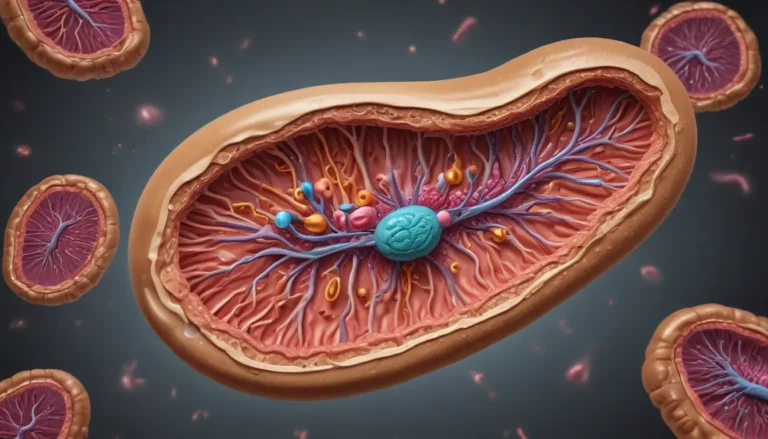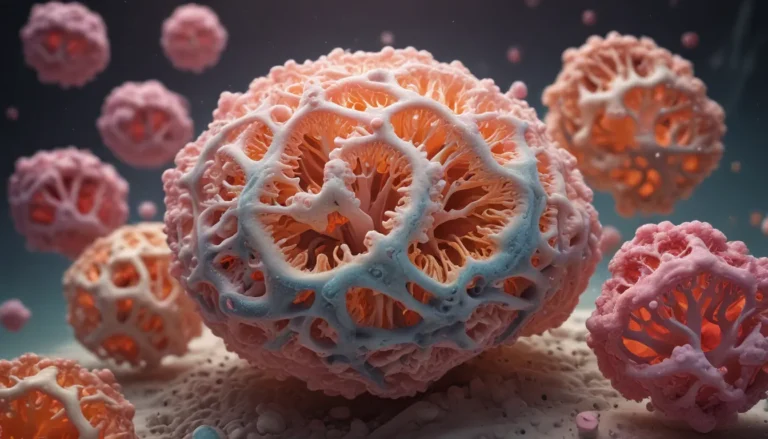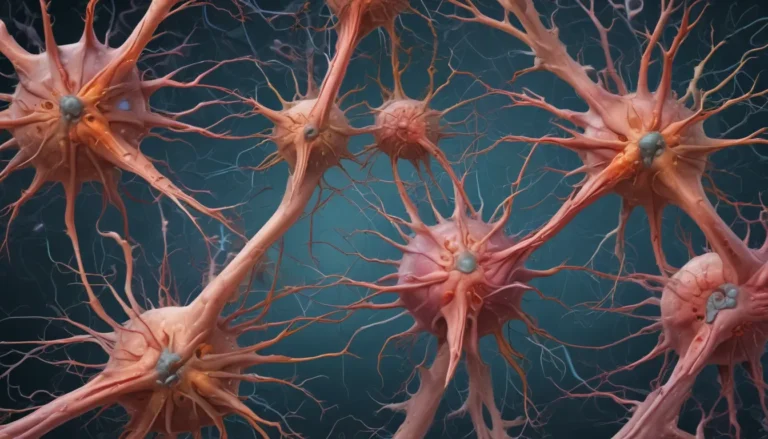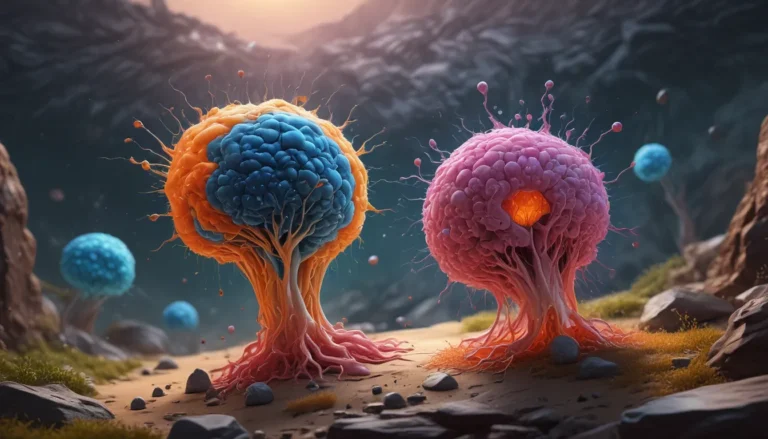A Note About Images: The images used in our articles are for illustration purposes only and may not exactly match the content. They are meant to engage readers, but the text should be relied upon for accurate information.
In the intricate symphony of the human body, the endocrine system stands as a silent conductor, orchestrating the delicate balance of hormones that regulate our every function. Comprised of a network of glands that produce and release these chemical messengers into the bloodstream, the endocrine system is a marvel of complexity and significance. While we may have a basic understanding of this system, there are numerous enigmatic facts about endocrine glands that can surprise and intrigue us. From their role in growth and development to their impact on metabolism and reproduction, these glands play a pivotal role in our overall health and well-being.
The Endocrine System: An Intricate Control Center
- The endocrine system operates as a covert control center within our bodies, with glands like the pituitary, thyroid, and adrenal glands working in harmony to regulate vital functions such as growth, metabolism, and stress response.
- Hormones, the tiny messengers secreted by these glands, influence a myriad of bodily processes, from our sleep-wake cycle to our fight-or-flight response. They act as invisible superheroes working tirelessly within us.
The Pituitary Gland: Master of Hormones
Nestled at the base of the brain, the pituitary gland, often dubbed the “master gland,” exerts control over other endocrine glands by releasing stimulating or inhibiting hormones. It governs crucial functions ranging from growth and reproduction to thyroid activity and stress response.
The Thyroid Gland: Regulator of Metabolism
Located in the neck, the thyroid gland manufactures hormones essential for balancing metabolism. These hormones dictate the rate at which cells convert nutrients into energy, affecting weight, body temperature, and heart rate. An overactive thyroid can result in weight loss and anxiety, while an underactive thyroid may lead to weight gain and fatigue.
The Adrenal Glands: Orchestrators of the Fight-or-Flight Response
Perched atop the kidneys, the adrenal glands produce adrenaline and cortisol, pivotal in the body’s response to stress. These hormones trigger the fight-or-flight reaction when confronted with danger, elevating heart rate, energizing the body, and sharpening focus to enhance survival chances.
The Pineal Gland: Regulator of Our Internal Clock
Deep within the brain lies the pineal gland, which governs the body’s internal clock, known as the circadian rhythm. This gland produces melatonin, a hormone crucial in controlling sleep and wake cycles. Disruptions in pineal gland function can lead to sleep disorders and disturbances in our natural sleep-wake rhythm.
The Pancreas: Balancer of Blood Sugar Levels
Beyond producing digestive enzymes, the pancreas plays a pivotal role in maintaining stable blood sugar levels. It secretes insulin and glucagon, which cooperate to regulate sugar levels in the bloodstream. While insulin lowers blood sugar, glucagon elevates it when necessary.
Ovaries and Testes: Generators of Sex Hormones
In women, the ovaries synthesize estrogen and progesterone, steering the menstrual cycle and overseeing secondary sexual traits. Conversely, the testes in men generate testosterone, pivotal in sperm production and the development of masculine characteristics. These hormones wield substantial influence over reproduction and sexuality.
Parathyroid Glands: Custodians of Calcium Levels
Situated behind the thyroid, the parathyroid glands emit parathyroid hormone (PTH), responsible for regulating calcium concentrations in the body. PTH boosts calcium levels by freeing the mineral from bones and enhancing its absorption in the intestines. Imbalances in PTH levels can precipitate bone disorders like osteoporosis.
Adipose Tissue: An Unassuming Secretory Organ
Often dismissed as mere fat, adipose tissue emerges as an unexpected endocrine organ, releasing hormones called adipokines that modulate appetite, insulin sensitivity, and inflammation. Dysfunction in adipose tissue can contribute to metabolic disorders such as obesity and diabetes.
Thymus Gland: Essential for Immune System Fortification
Residing in the upper chest, the thymus gland plays a pivotal role in nurturing and maturing immune cells known as T-lymphocytes or T cells. These cells are vital in mounting immune responses against infections and malignancies. As age progresses, the size of the thymus gland diminishes, impacting immune system functionality.
Placenta: A Transient Endocrine Entity
Exclusive to pregnancy, the placenta emerges as a temporary endocrine organ crucial for hormonal production. It generates hormones like human chorionic gonadotropin (hCG), progesterone, and estrogen, imperative in supporting fetal growth and maintaining pregnancy. Postpartum, the placenta is excreted from the body.
Hypothalamus: The Nexus Between Nervous and Endocrine Systems
Though not a gland per se, the hypothalamus assumes a pivotal role in bridging the nervous and endocrine systems. It emits hormones that kindle or suppress the release of hormones from the pituitary gland, guaranteeing seamless communication between the two systems.
Endocrine Disruptors: Environmental Influencers
In our contemporary milieu, exposure to endocrine-disrupting chemicals through ubiquitous products like plastics, pesticides, and certain cosmetics abounds. These substances can perturb hormonal function, precipitating reproductive complications, developmental aberrations, and an elevated susceptibility to hormone-related cancers.
Embracing the Enigmatic Elegance of Endocrine Glands
The enigmatic realm of the endocrine system and its glands bespeaks a captivating complexity. Delving into these 12 fascinating facts furnishes insight into the inner workings of our bodies and fosters a profound appreciation for the delicate equilibrium hormones bestow upon our daily lives.
Conclusion
In essence, endocrine glands epitomize guardians of homeostasis, steering an array of bodily mechanisms with finesse and precision. From metabolism modulation to growth regulation, these glands epitomize enigma in their functions. Diving deeper into their intricacies and the intriguing facts enveloping them augments our comprehension of the human body’s exquisite complexities.
FAQs
Q: What are endocrine glands?
A: Endocrine glands constitute a consortium of glands that secrete hormones directly into the bloodstream, serving as chemical intermediaries that regulate diverse bodily functions.
Q: How many endocrine glands does the human body harbor?
A: The human body houses approximately nine prominent endocrine glands, including the pituitary gland, thyroid gland, adrenal glands, pancreas, and reproductive glands.
Q: What are common endocrine disorders?
A: Frequently encountered endocrine disorders encompass diabetes, thyroid maladies, adrenal insufficiency, and pituitary disorders, manifesting as disruptions in hormone production and engendering an array of health issues.
Q: How is hormone release regulated?
A: Hormone disbursement undergoes regulation through an intricate feedback mechanism wherein elevated hormone levels instigate suppression while diminished levels propound stimulation.
Q: Can endocrine disorders be successfully managed?
A: Indeed, numerous endocrine disorders can be efficaciously managed or rectified through medications, lifestyle modifications, hormone replacement therapy, or surgical interventions contingent on the specific disorder.
Q: What role does the hypothalamus play in the endocrine system?
A: The hypothalamus serves as a pivotal nexus between the nervous and endocrine systems, generating hormones that modulate hormone release from the pituitary gland.
Q: Can stress exert an impact on the endocrine system?
A: Prolonged or chronic stress can exert a significant influence on the endocrine system, deranging hormone equilibrium and predisposing individuals to an array of health complications.
Embark on a voyage of discovery into the enigmatic allure of endocrine glands to broaden your understanding of these intricate components governing bodily functions. Whether delving into the commanding presence of the pituitary gland or unraveling the intricacies of the adrenal glands’ response to stress, the mysteries awaiting exploration are boundless. Embrace the opportunity to illuminate the shadows enveloping these vital glands and cultivate a deeper reverence for the wondrous mechanisms underpinning our health and well-being.






